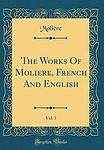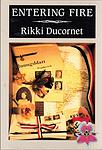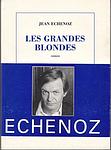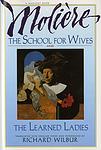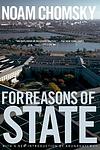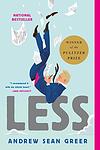The Greatest "Paris, Satire" Books of All Time
Click to learn how this list is calculated.
This list represents a comprehensive and trusted collection of the greatest books. Developed through a specialized algorithm, it brings together 300 'best of' book lists to form a definitive guide to the world's most acclaimed books. For those interested in how these books are chosen, additional details can be found on the rankings page.
Genres
The "Paris" category of books typically refers to literature that is set in or inspired by the city of Paris, France. These books often explore the city's rich history, culture, and landmarks, as well as the experiences of its inhabitants. The genre may include fiction, non-fiction, memoirs, and travelogues, and may cover a range of topics such as art, food, fashion, and romance. Overall, the "Paris" category offers readers a glimpse into the enchanting and iconic city that has captivated generations of writers and artists.
Satire is a genre of literature that uses humor, irony, and exaggeration to criticize and ridicule human vices, follies, and shortcomings. It is a form of social commentary that aims to expose the flaws and absurdities of society, politics, and culture. Satirical books often employ sarcasm, wit, and parody to challenge the status quo and provoke thought and reflection in readers. Satire can be both entertaining and thought-provoking, and it has been used throughout history as a powerful tool for social and political critique.
Countries
Date Range
Reading Statistics
Click the button below to see how many of these books you've read!
Download
If you're interested in downloading this list as a CSV file for use in a spreadsheet application, you can easily do so by clicking the button below. Please note that to ensure a manageable file size and faster download, the CSV will include details for only the first 500 books.
Download-
1. Journey to the End of The Night by Louis-Ferdinand Céline
The novel is a semi-autobiographical work that explores the harsh realities of life through the cynical and disillusioned eyes of the protagonist. The narrative follows his experiences from the trenches of World War I, through the African jungles, to the streets of America and the slums of Paris, showcasing the horrors of war, colonialism, and the dark side of human nature. The protagonist's journey is marked by his struggle with despair, loneliness, and the absurdity of existence, offering a bleak yet profound commentary on the human condition.
-
2. The Custom of the Country by Edith Wharton
The book follows the ambitious and cunning Undine Spragg, a beautiful Midwestern girl who marries her way into New York high society. Undine's insatiable desire for wealth, status, and comfort leads her through a series of marriages and divorces, each time climbing higher on the social ladder. However, her ruthless pursuit of success and disregard for social norms ultimately leave her feeling empty and dissatisfied. The novel offers a critique of American society and its values during the early 20th century.
-
3. Zazie in the Metro by Raymond Queneau
A young, precocious girl named Zazie comes to Paris to stay with her flamboyant uncle, a professional female impersonator. She is obsessed with riding the Metro, but a strike thwarts her plans. As she explores the city on her own, she encounters a variety of eccentric characters, gets into mischief, and ultimately causes chaos in the city. The novel is a humorous and satirical look at Parisian life, filled with word play and surreal elements.
-
4. Gentlemen Prefer Blondes: The Illuminating Diary of a Professional Lady by Anita Loos
This book is a satirical novel that follows the adventures of a blonde flapper named Lorelei Lee, who uses her looks and charm to climb the social ladder. Lorelei, originally from Little Rock, Arkansas, is a materialistic and somewhat naive woman, who values men for their wealth and status. The story, presented as Lorelei's diary, humorously explores themes of gender, class, and the American pursuit of wealth and status in the early 20th century.
-
5. Death on Credit by Louis-Ferdinand Céline
"Death on Credit" is a semi-autobiographical novel that explores the life of a young Frenchman in Paris during the early 20th century. The protagonist, a medical student from a poor family, struggles with the harsh realities of life, including poverty, sickness, and death. The narrative is marked by its dark humor, cynicism, and scathing critique of society, reflecting the author's own experiences and views. The protagonist's journey is a constant struggle against the absurdity and despair of existence, depicted through a series of episodic adventures and misadventures.
-
6. The Misanthrope by Molière
"The Misanthrope" is a satirical play that explores the hypocrisy and corruption of French aristocratic society through the eyes of the protagonist, a man who insists on absolute honesty and despises flattery, insincerity, and social conventions. Despite his disdain for society, he falls in love with a coquette who embodies everything he detests, leading to a series of comedic and dramatic situations. The narrative ultimately emphasizes the importance of balance between truth and courtesy in social interactions.
-
7. Rameau's Nephew by Denis Diderot
"Rameau's Nephew" is a philosophical dialogue that explores themes of morality, societal norms, and the nature of genius. The story revolves around a conversation between a philosopher and a character who is the nephew of a famous musician. The nephew, a freeloader and a parasite, defends his lifestyle by arguing that it is not only acceptable but also necessary in a society where wealth and power determine value. The dialogue delves into the contradictions and ironies of social conventions, challenging traditional notions of virtue, vice, and human nature.
-
8. The Works of Moliere by Molière
This book is a compilation of the works of a renowned 17th-century French playwright, who is often considered one of the greatest masters of comedy in Western literature. His plays are known for their satirical examination of social norms and human folly, featuring a range of characters from the foolish and the pedantic to the hypocritical and the corrupt. Some of his most famous works included in this collection are "Tartuffe," "The Misanthrope," and "The Imaginary Invalid."
-
9. Moravagine by Blaise Cendrars
The novel follows the adventures of an eccentric, violent, and mentally unstable protagonist who is released from an asylum by his psychiatrist. The pair embark on a chaotic journey across Europe and America, encountering a variety of strange and often dangerous situations. The narrative explores themes of insanity, violence, and the human condition, offering a dark and surreal critique of modern society.
-
10. The Miser by Molière
"The Miser" is a comedic play that revolves around a wealthy man who is so obsessed with his money that he neglects his own children. His son and daughter, both in love with people they cannot afford to marry due to their father's stinginess, scheme to trick him out of his wealth. The play satirizes the greed and hypocrisy of the upper class, while exploring themes of love, deception, and the value of money.
-
11. Tarr by Wyndham Lewis
"Tarr" is a novel set in pre-World War I Paris and follows the story of an English artist, Frederick Tarr. The narrative explores the complex relationships between Tarr and his friends, including his German rival Kreisler and the woman they both love, Bertha. The novel delves into themes of modernism, masculinity, and the clash of cultures, while also providing a satirical critique of the bohemian lifestyle in early 20th century Paris.
-
12. The Provincial Letters by Blaise Pascal
"The Provincial Letters" is a series of 18 letters written by a philosopher and mathematician, where he defends his friend Antoine Arnauld, an opponent of the Jesuits, who was on trial before the faculty of theology in Paris for his controversial religious works. The letters mockingly criticize the morals and ethics of Jesuits, and the casuistry they used to justify moral laxity, while also debating various philosophical and theological issues. The letters are considered a masterpiece of French prose and had a significant influence on the French language.
-
13. Whatever by Michel Houellebecq
"Whatever" is a satirical novel that explores the life of a depressed and disillusioned computer programmer working for a software company in Paris. The protagonist's life is characterized by his cynicism and indifference towards his job, his failed relationships, and society at large. His only relief comes from his philosophical musings about life and the human condition. The novel is a bleak critique of modern society and the isolation and alienation brought about by technology and capitalism.
-
14. A Harlot High And Low by Honoré de Balzac
The novel delves into the underbelly of Parisian society, following the life of a cunning and ambitious protagonist who navigates the treacherous waters of crime and power. As a sequel to a previous work, it continues to explore themes of social climbing and moral ambiguity, presenting a complex web of characters from different social strata, including a high-class courtesan whose fortunes rise and fall dramatically. The narrative weaves a tale of deception, love, and betrayal, offering a critical look at the corruption and hypocrisy of 19th-century France, while also examining the intricate relationships between money, politics, and social status.
-
15. The Blue Flowers by Raymond Queneau
The novel is a playful and complex narrative that intertwines the stories of two characters living centuries apart: the medieval Duke of Auge as he goes on various adventures, and a modern-day Frenchman named Cidrolin who spends his days idly lounging on a barge moored on the Seine. The narrative switches back and forth between the two timelines with each chapter, employing a variety of literary styles and linguistic puns. The book is known for its experimental use of language, its humorous take on historical and contemporary life, and its exploration of themes such as time, identity, and the cyclical nature of existence.
-
16. Entering Fire by Rikki Ducornet
"Entering Fire" is a dark, surreal exploration of the human psyche, set against the backdrop of 19th-century France. The story follows the life of a man obsessed with the bizarre and grotesque, as he delves into the world of sexual obsession, madness, and the grotesque. His journey takes him from the underbelly of Paris to the exotic landscapes of North Africa, as he seeks to understand the nature of desire and the limits of the human mind. The narrative is rich with historical detail and vivid, dreamlike imagery, creating a world that is at once fascinating and deeply disturbing.
-
17. Big Blondes by Jean Echenoz
"Big Blondes" is a satirical novel that delves into the frenzied pursuit of a reclusive former pop star, Gloria Stella. After deciding to vanish from the public eye, Gloria becomes the target of a relentless documentary filmmaker determined to track her down for a career-defining exposé. The narrative unfolds as a humorous and thrilling chase across various countries, weaving through absurd situations and eccentric characters. The novel critiques celebrity culture and the media's obsessive fascination with public figures, all delivered with sharp wit and a playful tone.
-
18. The Learned Ladies by Molière
The play is a satirical comedy that delves into the pretensions and affectations of intellectualism and pedantry among the bourgeois class. It centers around the conflict within a family over the value of genuine learning and the superficial appearance of being cultured. The plot revolves around two young lovers whose marriage is opposed by the mother, who is under the influence of a pseudo-intellectual poet. The mother wishes her daughter to marry this pedantic man instead, valuing his ostentatious display of knowledge over genuine wisdom and love. The play mocks the absurdities of academic snobbery and the misplaced priorities of those who value the appearance of intelligence over true understanding and happiness.
-
19. Reasons Of State by Alejo Carpentier
"Reasons of State" is a satirical novel that delves into the life of a Latin American dictator who clings to power through manipulation and the ruthless suppression of opposition. Set against the backdrop of early 20th-century political turmoil, the narrative explores themes of corruption, decadence, and the absurdity of authoritarian regimes. The protagonist, a caricature of the archetypal tyrant, navigates through a series of farcical and tragic events, revealing the hollow core of his regime's pomp and circumstance. The novel critiques the self-serving justifications of those in power, who often cloak their actions under the guise of state necessity and progress, while their personal and political decisions lead to the suffering and disenfranchisement of the people they rule.
-
20. Seven Dada Manifestoes by Tristan Tzara
This book is a collection of manifestos that serve as a seminal document in the history of the Dada movement, an avant-garde art movement of the early 20th century. The texts within are a blend of satire, polemic, and absurdity, reflecting the movement's disdain for the norms of bourgeois culture and traditional aesthetics. The author, a key figure in Dadaism, uses these manifestos to challenge concepts of art, literature, and politics, advocating for chaos and spontaneity over logic and reason. The work is both a philosophical treatise and a call to arms, encouraging the reader to question the status quo and embrace the liberating power of nonconformity and irrationality.
-
21. Ridiculous Precieuses by Molière
The play is a satirical comedy that pokes fun at the pretentiousness and affectations of the intellectual and social elite of the time. It centers around two young men who, in their pursuit of love, find themselves entangled with a group of affected women who are obsessed with the finer points of literary and social etiquette. The men must navigate through the absurdities of these self-proclaimed "precieuses" (precious ones), whose ludicrous behavior and exaggerated mannerisms are both mocked and exposed as ridiculous. The work is a humorous critique of the artificialities of certain social circles and the lengths to which people will go to appear more sophisticated than they truly are.
-
22. Less by Andrew Sean Greer
The novel follows a failing writer about to turn 50, who receives an invitation to his ex-boyfriend's wedding. In order to avoid the event, he decides to accept every literary invitation he's been given and embarks on an around-the-world journey. As he travels from Paris to India, Berlin to Japan, he finds himself facing the big questions about love, aging, and how to live a life that matters.
Reading Statistics
Click the button below to see how many of these books you've read!
Download
If you're interested in downloading this list as a CSV file for use in a spreadsheet application, you can easily do so by clicking the button below. Please note that to ensure a manageable file size and faster download, the CSV will include details for only the first 500 books.
Download






